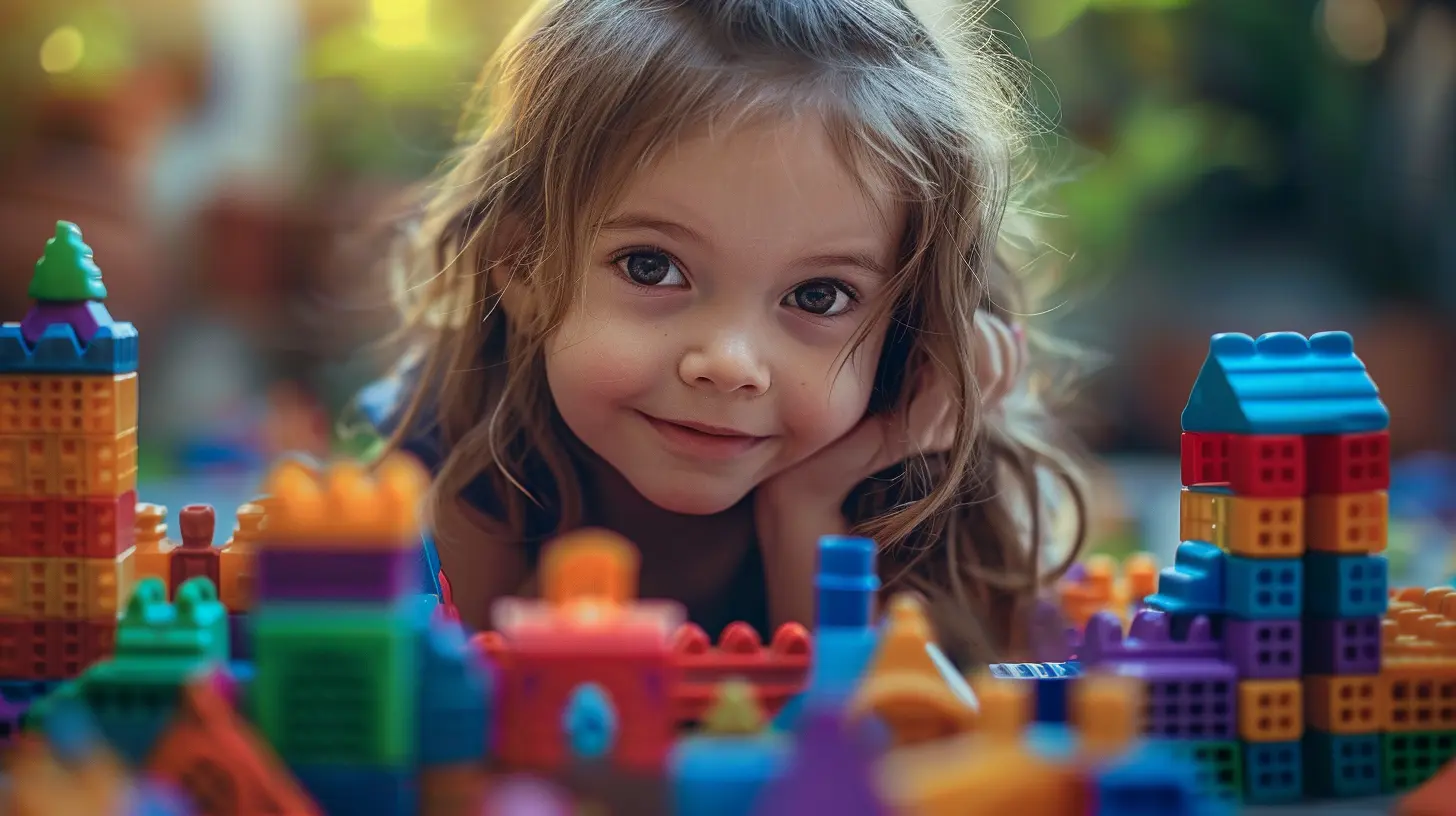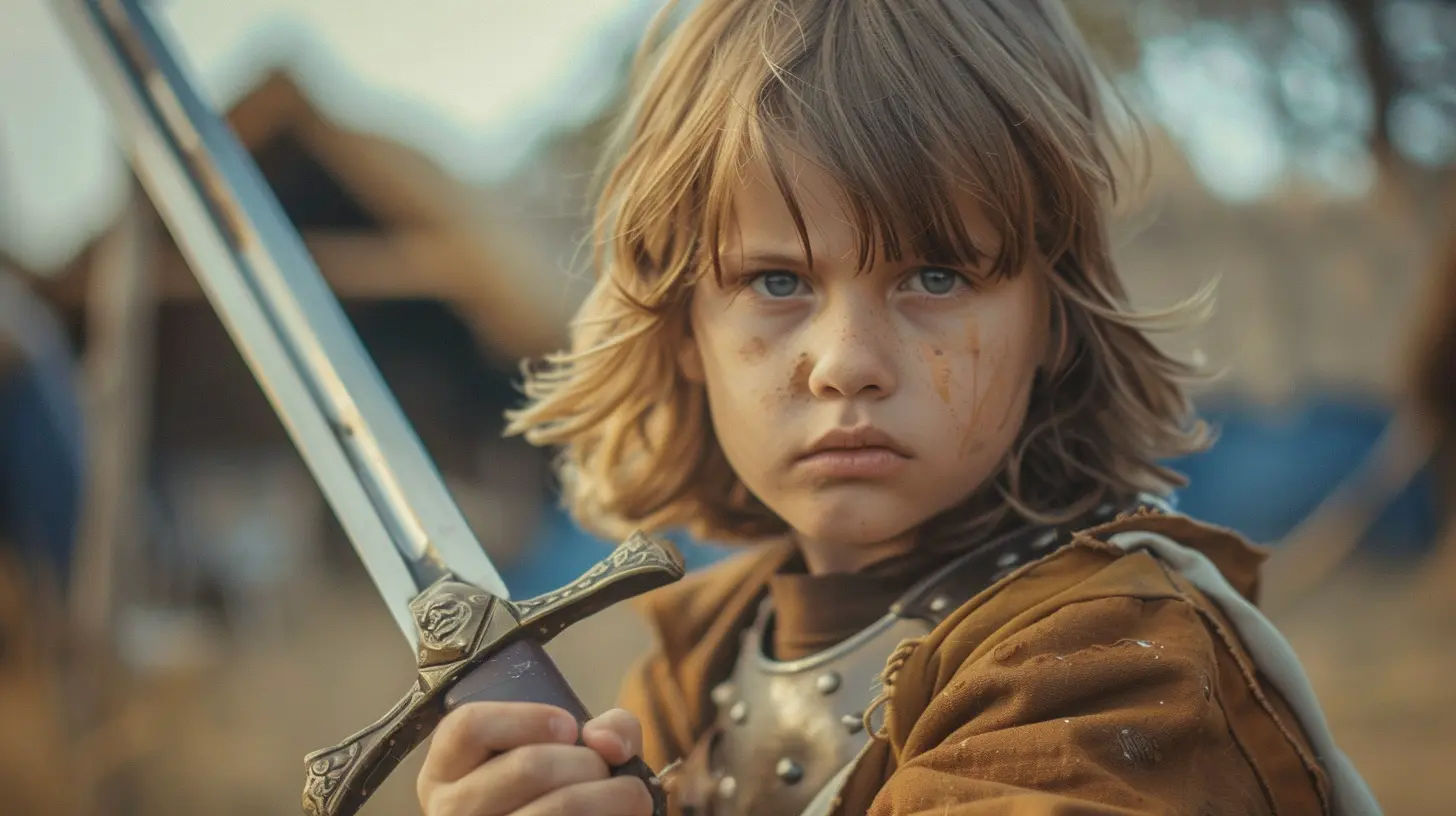Make-Believe Kingdoms: The Benefits of Fantasy Play
24 July 2025
Ever noticed how kids can turn a cardboard box into a spaceship, a blanket into a royal cloak, or a set of cushions into a towering fortress? One moment they are pirate captains steering a ship, and the next, they're saving the world as gallant knights or wise sorcerers. At first glance, it might seem like just entertainment or a way to pass the time. But what if I told you that this kind of "pretend play" is critical to their development? Yep, that's right—fantasy play is way more than silly fun. It’s a secret ingredient to raising creative, resilient, and socially adept little humans.
In this article, we’ll dive deep into the enchanting world of make-believe, exploring how it fosters a child’s cognitive, emotional, and social growth. So grab your imaginary sword (or magic wand), and let’s get started! 
What Is Fantasy Play Anyway?
Fantasy play, also known as dramatic play or pretend play, is when kids use their imaginations to create scenarios, characters, and stories. It’s the kind of play that doesn’t follow scripted rules. Instead, it’s powered by creativity and driven by their boundless curiosity.So, when your kid pretends the couch is a volcano and the floors turn into lava, they’re not just messing around—they’re tapping into their creativity. This kind of imaginative "world-building" lays the foundation for critical skills they’ll use for the rest of their lives. 
Why Fantasy Play Matters
1. Boosts Creativity and Problem-Solving
When kids engage in fantasy play, they’re not just pretending; they’re learning to think outside the box. For example, when they imagine they’re stranded on a deserted island, suddenly a broomstick becomes a fishing rod, and a pile of pillows turns into a raft.This is creativity in action. Kids learn how to adapt, invent, and solve problems, which are crucial life skills. In the adult world, we call this "innovative thinking"—and companies pay top dollar for it. But kids? They get there by figuring out how to “defeat the dragon” with a stick they found in the backyard.
2. Promotes Emotional Growth
Have you ever noticed how kids act out the roles of parents, doctors, or superheroes during pretend play? It’s their way of processing emotions and trying to make sense of the world around them.Fantasy play is like their personal emotional sandbox. They might explore what it feels like to be brave, experiment with leadership roles, or even act out difficult emotions, such as fear or sadness, in a safe and controlled way. It’s their version of therapy, and it helps them build emotional resilience.
3. Enhances Social Skills
When kids play knights and princesses with their friends, they’re not just swinging imaginary swords or building castles—they’re learning how to interact.Fantasy play often involves collaboration. Kids negotiate roles (“You be the dragon, and I’ll be the knight”), set up the rules, and sometimes, they even settle conflicts. They learn how to take turns, share, and communicate effectively. Surprise, surprise—these are the same skills they’ll need to thrive in school, relationships, and work later in life.
4. Supports Language and Communication
Have you ever eavesdropped on kids during pretend play? It’s like they're rehearsing for a play nobody knew they wrote. They’re narrating, giving instructions, and using words in creative new ways.Fantasy play expands their vocabulary because they’re constantly coming up with new ideas and expressing them. For example, they might announce, “Welcome to the kingdom of Sparkleland, where unicorns rule and humans are guests.” They’re not just playing—they’re building their linguistic skills word by word.
5. Builds Confidence and Leadership Skills
In their make-believe kingdoms, kids get to be in charge. Whether they’re the captain of a pirate ship or the ruler of an enchanted forest, they’re calling the shots. And let’s be honest: it feels good to be the boss.These moments of leadership in imaginary play can translate to real-life confidence. When kids feel empowered in their make-believe world, it can give them the courage to take on challenges in the real world.
6. Encourages Empathy
When your child pretends to be a doctor helping a sick patient or a superhero saving the day, they’re not just role-playing—they’re practicing empathy.Fantasy play lets kids step into someone else’s shoes. It helps them think about other people’s feelings and perspectives, which is a huge step toward developing empathy. And let’s face it, the world could always use a little more kindness, right? 
What Can Parents Do to Support Fantasy Play?
Now that we know how awesome fantasy play is, let’s talk about how you can encourage it. Spoiler alert: You don’t need fancy toys or expensive playsets.1. Provide Open-Ended Toys
Think building blocks, dolls, dress-up clothes, or even plain household items like cardboard boxes and bed sheets. These kinds of toys don’t come with instructions, allowing kids to use them in endless ways.2. Set the Stage but Don’t Direct
It’s tempting to jump in and try to “improve” their imaginary game, but resist the urge. Let your child take the lead. Your job is to provide the tools, not the storyline.3. Play Along (But Let Them Be the Boss)
Join in the fun! If your child wants you to be the dragon in their story, do it with gusto. But remember, they should remain the creative director.4. Make Time for Free Play
In today’s overscheduled world, kids often have limited time for free play. Try to leave room in their day for unstructured, screen-free playtime where their imaginations can run wild.
The Neuroscience Behind Imagination
Here’s a little science to back it up. When children engage in fantasy play, their brains light up in areas responsible for problem-solving, memory, and emotional regulation. Neuroscientists have found that pretend play strengthens neural pathways, particularly in the prefrontal cortex—the part of the brain associated with creativity and complex thinking.In simpler terms? Their brains are getting a serious workout, even if it just looks like they’re galloping around on a broomstick.
What About Screen Time?
Let’s be real—kids these days have a ton of options when it comes to entertainment, and screens often take center stage. While there’s a place for technology, it’s no substitute for hands-on, imaginative play.When kids watch a movie, they’re consuming someone else’s story. But when they engage in fantasy play, they’re creating their own. That distinction is huge, especially when it comes to building creativity and independence.
Wrapping It Up
So, the next time you see your child donning a makeshift crown, wielding a broomstick, or pretending a stuffed animal is their royal advisor, don’t brush it off as silly. They’re not just playing—they’re building skills that will serve them for life.Fantasy play isn’t just a childhood pastime; it’s an essential part of growing up. It’s where castles are built, kingdoms are ruled, and future innovators, leaders, and dreamers take their first steps.
So, let’s celebrate those make-believe kingdoms and encourage our kids to dream big. Who knows? The next “king” of the living room might just grow up to change the world.
all images in this post were generated using AI tools
Category:
Playtime IdeasAuthor:

Karen Hurst
Discussion
rate this article
2 comments
Remi Summers
Love this! Fantasy play sparks creativity and builds confidence in kids!
November 12, 2025 at 6:05 AM

Karen Hurst
Thank you! I'm glad you enjoyed it. Fantasy play truly does inspire creativity and confidence in children.
Sydney McFadden
This article beautifully highlights the importance of fantasy play in nurturing creativity and problem-solving skills in children. Thank you for sharing these valuable insights for parents!
July 26, 2025 at 3:51 PM

Karen Hurst
Thank you for your kind words! I'm glad you found the insights valuable for nurturing creativity in children.


